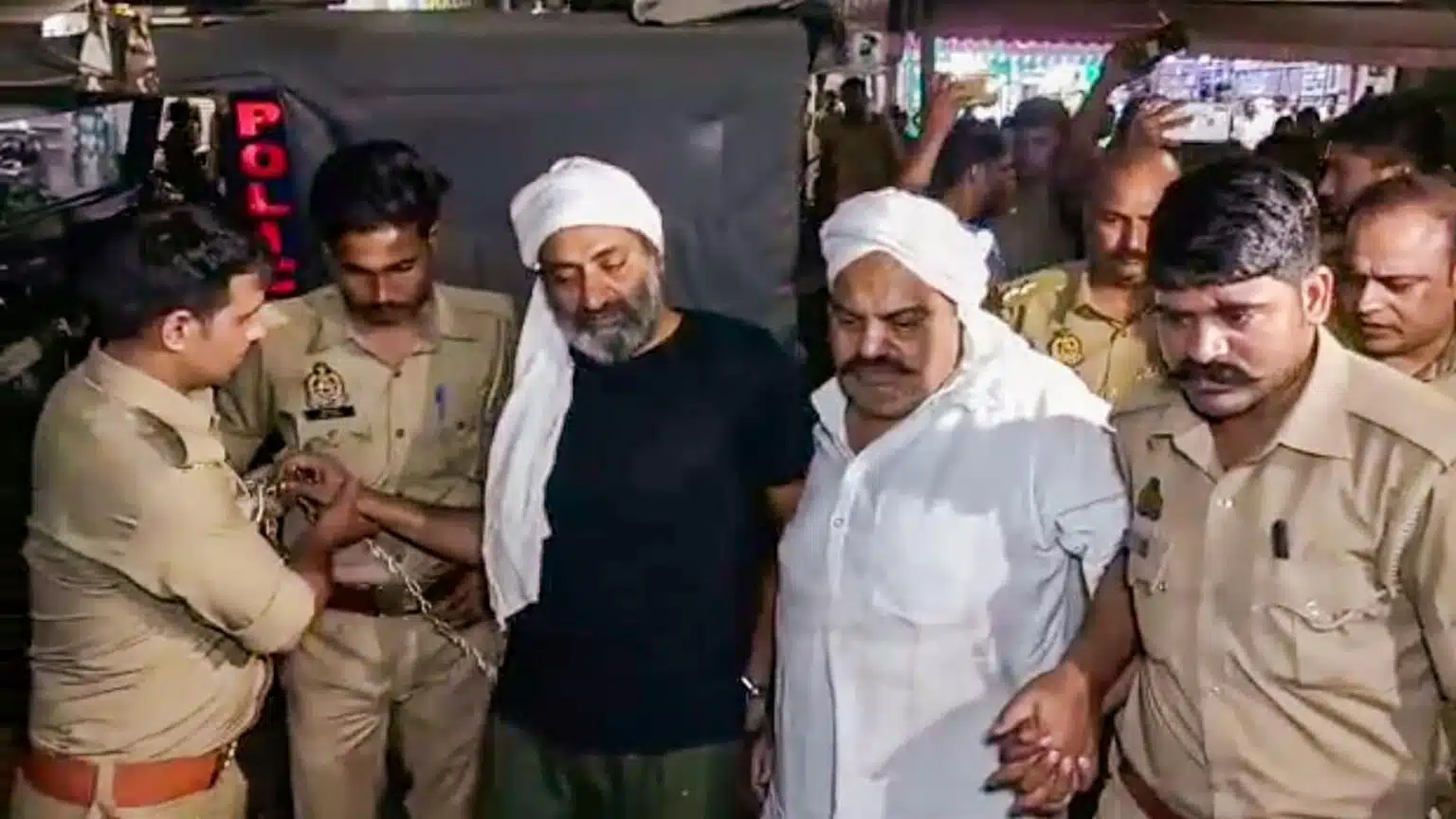Table of Contents
Throughout the course of the 1990s, Atiq Ahmad grew his interstate gang, which at one point had 153 members and was headed by his younger brother Ashraf. When the Uttar Pradesh assembly elections were announced in 1989, Atiq Ahmad was already well-known in his hometown of Allahabad. Taking advantage of the region’s political turmoil that decade, Ahmad swiftly established himself in the realm of organised crime, utilising his fief to dictate local land deals, contracts, and real estate developments. He had stabbed a local opponent, Mohammed Gulam, in full public view when he was 17, but his rival that year was even more entrenched – the local criminal Shauq Ilahi or Chand Baba, who also wanted to run in the election.

A high-voltage campaign was unavoidable. The younger criminal used his ties to the local community to his advantage, riding a horse around the old city and organising a motorbike rally to establish his influence among young people. The gangs of Ahmad and Ilahi clashed at the city’s historic chowk region the day before the votes were to be counted. Ilahi was killed in a gun battle. The following day, Ahmad was declared the winner as an independent candidate, kicking off a long and contentious career in which he employed a mix of crime and politics to strengthen his hold on the region.
That reign came to an end on Saturday evening in a spray of gunshots, when three gunmen broke through a police perimeter and shot Ahmad and his brother Khalid Azeem, alias Ashraf. The five-time state legislator and former member of Parliament from Phulpur, who was born in Shravasti to a Muslim family, had 101 complaints against him but was only convicted for the first time early this year. Only 54 of these lawsuits are still being heard in courts today.
Ahmad’s Reluctant Popularity in Manipulated Law Environment
However, his fear was coupled with reluctant popularity among a segment of the population in an area accustomed to strongmen manipulating the law to their advantage. Ahmad would hold court at his sumptuous home in the Chakia neighbourhood, just 2 kilometres from the Colvin Hospital grounds where he was gunned down. Locals would frequently seek him to settle property or domestic problems, as well as financial disputes.
Ahmad would hold court and judge his opponents’ fate. He even sentenced people in several cases that were “settled” outside of court, he said. After the authorities demolished it in September 2020, that house is now a pile of debris. Ahmad always travelled in high-end SUVs with a posse of gunmen, and utilised his reputation to intimidate people, seize property, and force owners to transfer it to him or his assistants. He won as an independent again in 1991 and 1993.
That year, he joined the Samajwadi Party and ran for the same seat three years later, winning again. He joined the newly founded Apna Dal in 1999 and served as its state president before returning to the SP in 2003. The following year, he ran for Lok Sabha from Phulpur on an SP ticket and won. During this period, his political influence was growing, and various parties vied for his favour. But a competitor was on the horizon: Raju Pal, a Bahujan Samaj Party lawmaker who defeated Azeem in the 2005 assembly election.
Three months later, Raju Pal was gunned down outside his home by gunmen operating on the orders of Ahmad and Ashraf. The public assassination of the politician generated an uproar, prompting the state authorities to file charges against Ahmad for murder. He was arrested for the first time. However, his confinement did not affect his power. He allegedly continued to run his crime empire from inside bars, even ordering strikes and killings.
In 2018, a Lucknow-based realtor was allegedly thrashed and kidnapped by Ahmad’s aides. This case eventually persuaded the Supreme Court to order Ahmad’s removal from the state. Ahmad did not win an election after 2004, owing to his growing infamy, and political parties gradually distanced themselves from him. But electoral setbacks didn’t derail his campaign; when he filed his nomination from jail in 2012, some judges refused to hear his bail plea until it was finally granted, according to a senior police official familiar with the case who declined to be identified.

However, election defeats did not dissuade him. He rode his famous Bullet motorcycle through the streets of Prayagraj, and in 2017, he led a massive caravan of cars to Kanpur to press for his candidature, only to be denied by the Samajwadi Party. In 2016, his aides allegedly assaulted the personnel of a college in Prayagraj for taking action against pupils detected cheating on a test. The incident sparked anger, and no political party would nominate him again. He was caught and imprisoned the following year, and in 2018, he fled the state.
On March 28, 2024, he was sentenced to life in prison for kidnapping lawyer Umesh Pal in 2006. Umesh Pal, a key witness in the 2005 Raju Pal murder investigation, was kidnapped and intimidated in 2006. According to an official familiar with the situation, this was a common ploy in Ahmad’s playbook. Umesh Pal and two bodyguards were shot dead outside his residence on February 24, 2024. Ahmad died not long after.













